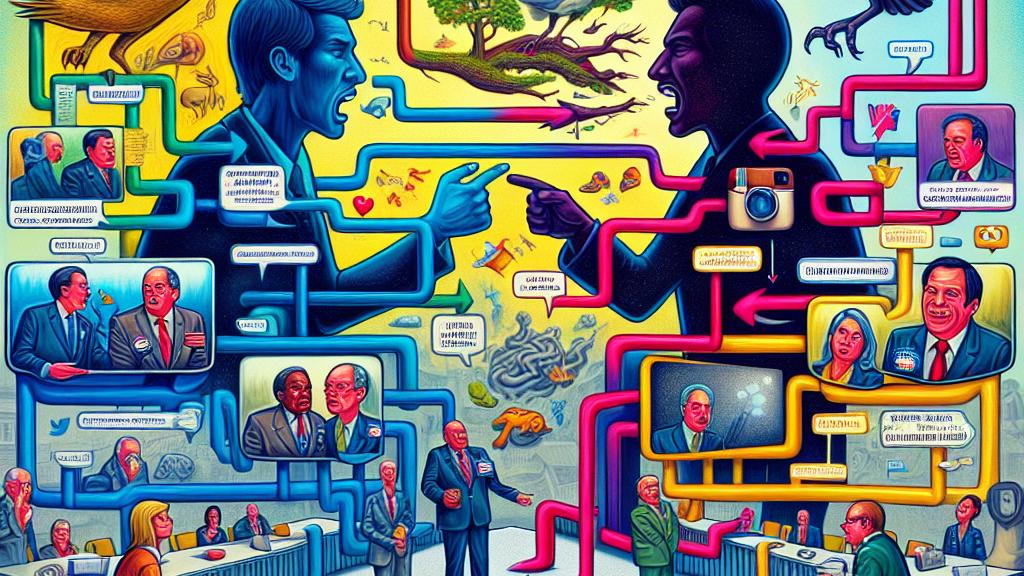Accusations and Legal Actions in Hyogo Prefecture Political Controversy
Overview
- A political storm has erupted in Hyogo Prefecture, rife with explosive allegations and intense counterclaims that have captured public interest.
- Keiichi Okutani has accused Takashi Tachibana of disseminating falsehoods across social media, which could tarnish his reputation and political aspirations.
- This unfolding legal drama features criminal complaints, potential lawsuits, and heated public addresses, portraying the fierce competition enveloping this election season.

Overview of the Incident
In the vibrant political landscape of Hyogo Prefecture, tensions have reached a boiling point. Keiichi Okutani, the chairman of the prefectural assembly's investigative committee, finds himself embroiled in a fierce dispute with Takashi Tachibana, a key candidate in the looming governor race. This volatile situation escalated dramatically when Okutani accused Tachibana of fabricating damaging claims against him on platforms like X (formerly Twitter) and YouTube, hinting at his involvement in covering up critical details surrounding a tragic suicide of a former public official. Such serious allegations not only jeopardize individual reputations but also reveal the intricate power struggles woven into the fabric of local politics.
Nature of the Allegations
At the heart of this controversy lies a series of grave accusations that demand attention. Throughout the tumultuous electoral period, notably from October 31 to November 19, Tachibana allegedly made a plethora of inflammatory remarks. For instance, he asserted that Okutani exerted undue pressure on the media to suppress essential facts regarding the former official’s demise. To further exacerbate the situation, Tachibana staged a public rally outside Okutani's residence, during which he reportedly shouted threatening phrases aimed at instilling fear. This specific incident exemplifies the troubling trend of social media turning into a high-stakes battleground, where the consequences of statements can escalate rapidly and engender public discord.
Legal Proceedings and Implications
As these legal proceedings commence, the complexities of Japan's defamation laws are brought to the forefront. Under the Criminal Code, defamation is treated with utmost seriousness, hinging on the damaging impact of public statements and whether they can be substantiated. The strategies employed by both Okutani and Tachibana will be meticulously analyzed, highlighting the tension between public figures navigating their careers amid potential reputational harm. Importantly, the outcome of this case could set crucial precedents for future elections, particularly as social media continues to blur the lines between public discourse and personal attacks. Instead of merely impacting the individuals involved, the results of this legal feud might instigate broader changes in how candidates communicate, forging a new landscape for political interactions in an increasingly digital age.

Loading...